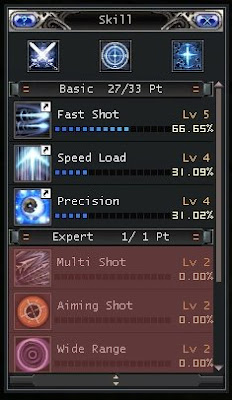Laptop guide

Ever heard of www.getafreelancer.com? Well, a friend of mine introduced me to this outsourcing wonder a year back. I wasn't into those stuff then, so I shelved it at the back of my head for a few months. Now that almost everyone who needs the extra cash is talking about it, this whole outsourcing thing has resurfaced.
The other day, a close buddy wanted to get a laptop so he can do outsourcing jobs part-time. He wanted to window shop for an affordable yet highly functional laptop. Thus, I found myself giving the ever friendly advice on good products and specs. The thing is, upon overhearing other customers, I realized there are tons of people out there shelling out cash for laptops without really knowing what they buy. So, I decided to offer a piece of my mind on the topic at hand.
What we, electronics consumers, should figure out before putting on our shopping shoes, the reasons behind the purchase. If you want to buy a laptop for quick word processing, surfing or checking the trivial email, you may want to get those modest more practical laptops available at the market. One of those is the ASUS Eee PC. Cheaper laptops usually are the choice for tasks that don't require so much RAM and less video memory. So, if you are a student on a tight budget or if you simply want to save on expenses, opt for the modest less fancy models on the stands.
However, if you want a laptop with top specs, you can go for the more capable ones. I should tell you though, they often come at pretty high prices.
If price isn't the issue, you may want to get more in depth and decide on what your needs are then match them up with the right hardware.
1. Processor Speed. Without the Processor (or CPU), there is no computer. It determines the computer's processing power and is measured in Hertz (most computers today run at the Gigahertz, GHz, range). Simply put, the faster the processor, the faster applications run. The most popular processors in the market are those of Intel and AMD. I, personally, would go for AMD for efficiency.
2. Next to the CPU, RAM is the most important factor in computer performance. RAM, which stands for Random Access Memory, improves access to your Hard Drive. It is the temporary memory your computer used to load your applications and data. If you plan to operate on the Windows XP platform, you might want to get at least 256MB of RAM. However, if you wish to go with Linux, a pinch of 4Mb will do just fine. You may also want to increase your RAM if you plan on using your laptop computer as something like a server (web servers). However, I would always go for 1 to 2 Gb of RAM, since I use heavy applications and play graphics-loaded games.
3. When you have all those lined up, you would need to store all your valuable applications and data. Let's now look at the Hard Drive. The Hard Drive works as a data bank where all information is kept. If you are into heavy word and graphics processing or if your applications eat up a lot of space, you would need a bigger storage capacity for your Hard Drive. Typical Hard Drives come at 80Gb these days.
4. Miscellaneous. Other hardware might come as secondary to those previously mentioned. But you might also want to put them into consideration, as they too can be important, especially media devices. A touch screen makes you work seamlessly simply by touching your monitor screen. Some tablet input features allow you to use a light pen to put down notes, highlight items or create designs. This is an option that has its sweet tooth among artists and designers because it allows them to directly express their creativity in a digital format. A swivel screen, extended-life batteries, Bluetooth, and built-in web cameras are other choices you may consider.
So, the next time you step into an electronics store to choose your laptop, keep these things in mind. You can save a lot of time and money and work more efficiently.
(Above image from http://flickr.com/photos/meestajack/508862122/)


Comments
Post a Comment